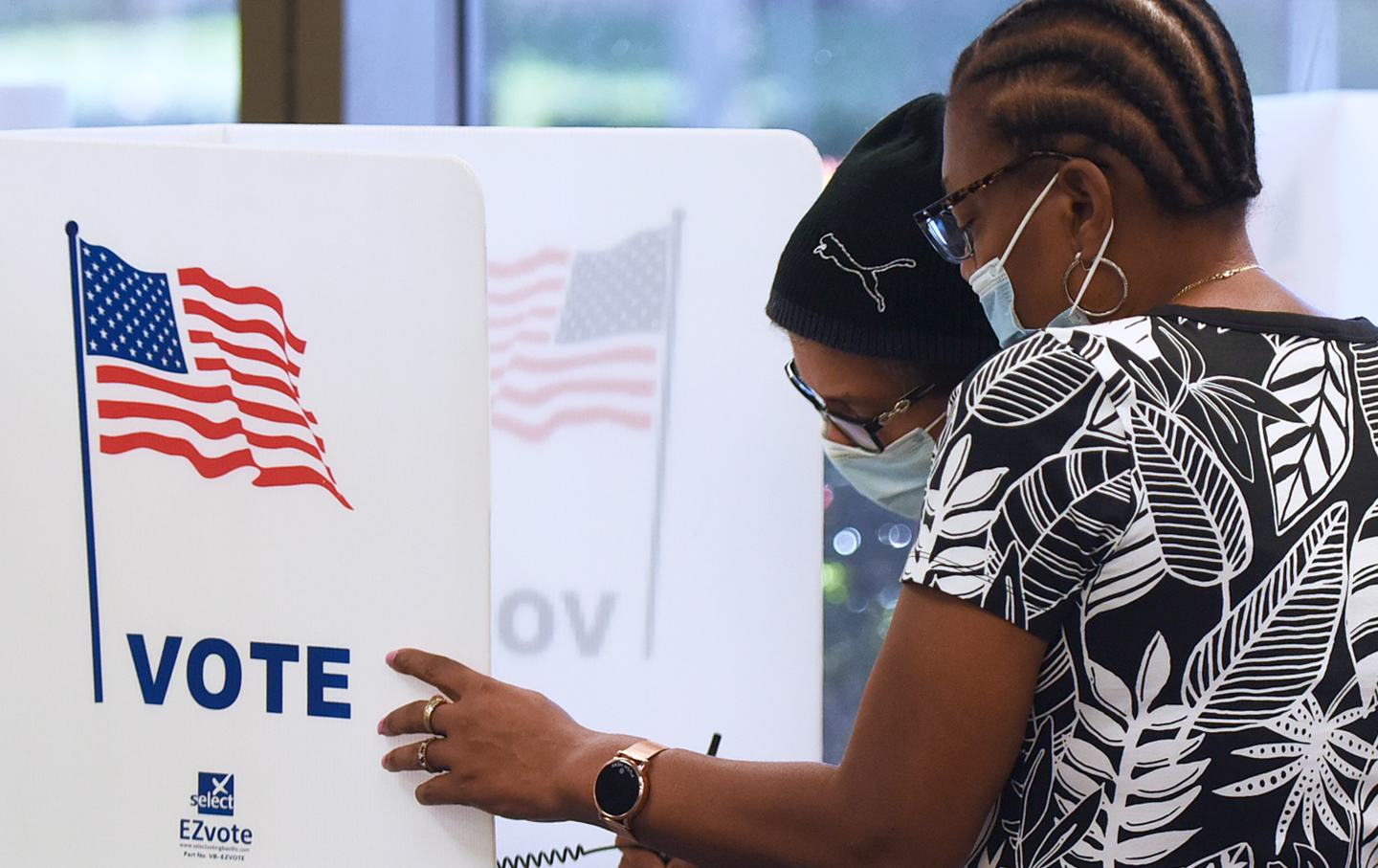What We Talk About When We Talk About the “Black Vote”
On this episode of See How They Run, a wide-ranging conversation with Christina Greer, Steve Phillips, and Adolph Reed Jr.

Here's where to find podcasts from The Nation. Political talk without the boring parts, featuring the writers, activists and artists who shape the news, from a progressive perspective.
On this episode of See How They Run, a wide-ranging conversation with Christina Greer, Steve Phillips, and Adolph Reed Jr.
If there's one thing everyone knows about American politics, it's that there is no way for a Democrat to win the presidency without Black voters. That's one of the reasons why, as Joe Biden fights desperately to stay in the 2024 election, he's made an aggressive effort to shore up Black support. In recent days, Biden has spoken at Black churches, given interviews to Black radio hosts, and leaned on the powerful Congressional Black Caucus to help bolster his political defenses.
But there are signs that Black voters may not be ready to turn out for Biden as fervently as he needs them to. in the past few months, polls have shown Black support for Biden slipping to levels Democrats have not seen in generations. So can Biden overcome doubts about his fitness, reverse these trends, and hold the White House? Should we even believe the polls? And are we in the middle of a historic shift in the relationship between Black voters and the Democratic Party?
To discuss all of this, D.D. Guttenplan is joined by a powerhouse trio of guests: Christina Greer, Associate Professor of Political Science at Fordham University; Steve Phillips, political strategist, Nation contributor, and author most recently of How We Win the Civil War: Securing a Multiracial Democracy and Ending White Supremacy for Good; and Adolph Reed Jr., Nation columnist and professor emeritus of political science at the University of Pennsylvania.
Advertising Inquiries: https://redcircle.com/brands
Privacy & Opt-Out: https://redcircle.com/privacy

Voters fill out vote-by-mail ballots at the Orange County Supervisor of Elections office in October of 2020 in Orlando, Florida.
(Paul Hennessy / NurPhoto / Getty)If there’s one thing everyone knows about American politics, it’s that there is no way for a Democrat to win the presidency without Black voters. That’s one of the reasons, as Joe Biden fights desperately to stay in the 2024 election, he’s made an aggressive effort to shore up Black support. In recent days, Biden has spoken at Black churches, given interviews to Black radio hosts, and leaned on the powerful Congressional Black Caucus to help bolster his political defenses.
But there are signs that Black voters may not be ready to turn out for Biden as fervently as he needs them to. in the past few months, polls have shown Black support for Biden slipping to levels Democrats have not seen in generations. So can Biden overcome doubts about his fitness, reverse these trends, and hold the White House? Should we even believe the polls? And are we in the middle of a historic shift in the relationship between Black voters and the Democratic Party?
To discuss all of this, D.D. Guttenplan is joined by a powerhouse trio of guests: Christina Greer, associate professor of political science at Fordham University; Steve Phillips, political strategist, Nation contributor, and author most recently of How We Win the Civil War: Securing a Multiracial Democracy and Ending White Supremacy for Good; and Adolph Reed Jr.,Nation columnist and professor emeritus of political science at the University of Pennsylvania.

Here's where to find podcasts from The Nation. Political talk without the boring parts, featuring the writers, activists and artists who shape the news, from a progressive perspective.
On this final episode of The Nation's election coverage podcast, See How They Run, D.D. Guttenplan is joined by John Nichols and Jeet Heer to discuss lessons learned from the 2024 Presidential races.
Advertising Inquiries: https://redcircle.com/brands
Privacy & Opt-Out: https://redcircle.com/privacy
